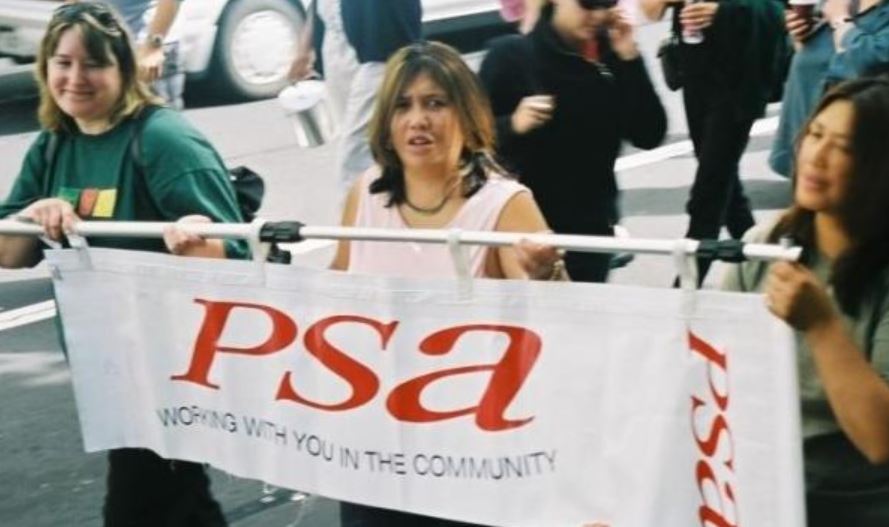
Janice Panoho Image: PSA
In her new role, Panoho oversees the integration of kaupapa Māori programmes and strategies into the PSA’s campaigns, works to normalise tikanga practice in the PSA, and leads the union’s engagement with iwi and kaupapa Māori organisations.
Panoho was 14 years old when she and fellow students from Auckland’s Western Springs College (then called Seddon High School) across the city’s harbour bridge during the 1975 Land March. Next year she was part of the Bastion Point occupation, as an organiser with the Grey Lynn Youth Group.
“It was a very political era in the 70s and 80s when we got started. We rose up to assert our rangatiratanga through the Māori rights movement, the trade union movement, the women’s movement, the mana wahine movement and homosexual law reform,” says Panoho.
“Aotearoa has changed because so many of us fought to change it.”
“As we pushed to change society, we also pushed for change within our unions. That’s where the Kaihautū Māori position comes from. The movements produced great role models who paved the way for us today. Through our own Māori leadership, we assert our mana as Māori workers in the PSA and in our communities.”
The Grey Lynn Youth Group organised young Māori and Pasefika in the 1970s and 80s, resourced and funded by Auckland City Council.
An active unionist all her life, Janice began work for the PSA in 1984. She was previously on the Executive Board of the Clerical Workers Union, and ran for parliament as a Mana Motuhake and Alliance candidate.
In the 1980s, Māori unionists came together in nationwide huis to demand genuine Treaty partnership and greater representation within union structures.
Panoho organised huis that led to the creation of Te Rūnanga o Ngā Toa Āwhina with the move to organise by sectors, the Māori network to which about 8,000 PSA members now belong. PSA is Aotearoa New Zealand’s largest union, representing over 750,000 workers.
“Māori have a troubled history with the New Zealand state, and as the union for state employees the PSA is well placed to campaign for positive change. The best way to improve this relationship is to improve the conditions in which Māori communities live,” says Panoho.
“What’s good for Māori workers is good for all workers. If we sort out the social issues for our people it will benefit all of Aotearoa. The struggle continues.”
A new report from the University of Auckland’s Our Voices Project asks young people what…
The government has opened a tender for new standardised assessment tests, leaving educators shocked and…
Early in her career, Kiri Turketo found inspiration in an unlikely source. In this Principal…
Real stories of dedication, challenges, and triumphs from educators in NZ. Part six comes from…
Is fast furniture impacting your school's environmental footprint? We explore eco-friendly solutions to reduce furniture…
A new report from the New Zealand Initiative argues we need a stronger and clearer…
This website uses cookies.